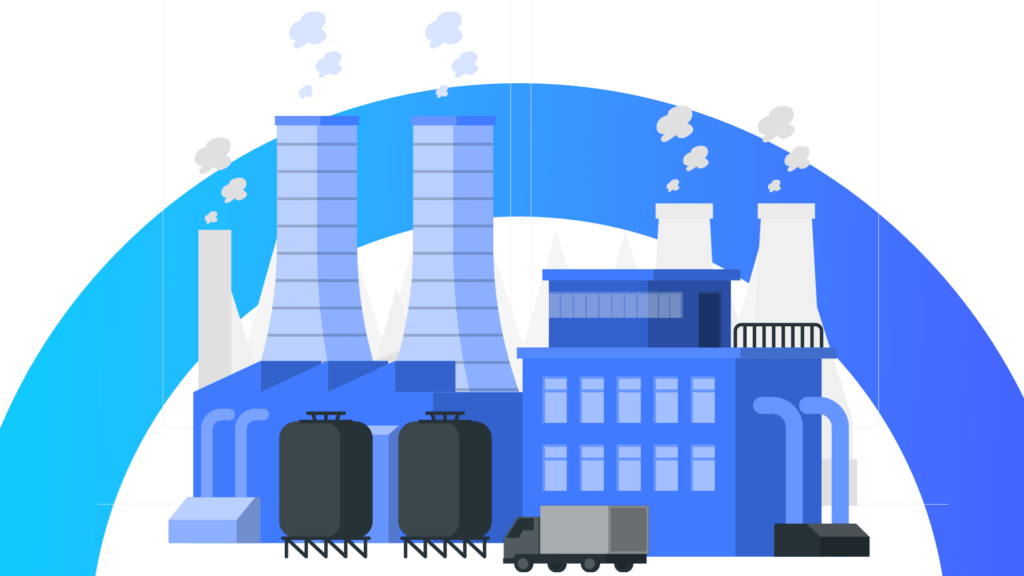Data analytics platforms are transforming manufacturing, enabling real-time insights, predictive maintenance, and operational optimization. As the global market for big data analytics grows rapidly, platforms like OmniConnectTM are setting the stage for smarter factories. Learn how these tools will shape manufacturing through 2025.
Introduction
In today’s manufacturing landscape, efficient leveraging of data is means to gain a competitive edge. The global big data analytics market is expected to experience nearly 30% annual growth in the coming years. Revenue projections indicate an increase from approximately $15 billion in 2019 to over $68 billion by 2025. A well-designed data analytics platform transforms raw information into actionable insights, optimizing production and decision-making processes.
In this blog, we will explore how harnessing data through a data analytics platform is the future. Here we’ll discuss the core features, benefits, and factors to consider while adopting a data analytics platform for industrial setups.
What makes a data analytics platform crucial in manufacturing?

In manufacturing and industrial settings, the volume of data generated is staggering, often running into petabytes annually. Yet, unless transformed into actionable insights raw data has little value. Data analytics platforms bridge this gap by providing real-time monitoring, historical tracking, and predictive insights. This capability improves product quality, minimizes downtime, and enhances process efficiency.
For instance, imagine a factory where machinery operates at suboptimal levels due to undetected wear and tear. Without analytics, such inefficiencies go unnoticed until they escalate into costly breakdowns. A data analytics platform can identify patterns in equipment behavior, allowing proactive maintenance and avoiding unexpected downtime.
Key features of an effective data analytics platform
An ideal data analytics platform for manufacturing integrates seamlessly with existing systems and offers essential functionalities:
1. Data automation
Automation is one of the most critical features, eliminating manual data entry and ensuring accuracy. Advanced platforms directly connect with tools like sensors and smart devices, capturing metrics without operator intervention.
2. Real-time analytics
Dashboards provide immediate insights into production metrics, such as cycle times, equipment performance, and defect rates. These insights empower teams to address bottlenecks or quality issues instantly, minimizing disruptions.
3. Traceability
Effective platforms maintain detailed records of each product’s lifecycle, tracking steps from raw materials to final assembly. This visibility supports regulatory compliance and simplifies audits, particularly in industries like automotive and aerospace.
4. Scalability and flexibility
Manufacturing needs evolve. The ideal platform scales with your operations and supports on-premise and cloud storage options. Seamless integration with tools like ERP systems and BI platforms is essential for holistic insights.
OmniConnectTM Data Cloud brings together all the essential features of a top-tier data analytics platform. Its robust real-time analytics, secure data storage, and seamless system integrations create a unified digital ecosystem for manufacturing. OmniConnectTM supports metadata-rich traceability and offers fully customizable dashboards to monitor operations effortlessly. With flexible scalability and cloud-based architecture, it ensures manufacturers remain agile as they grow. This platform empowers businesses to unlock actionable insights while reducing operational complexities.
Benefits of a data analytics platform in industrial settings
The adoption of a robust data analytics platform yields multiple advantages. Enhanced productivity stands out as a primary benefit. By analyzing workflows and identifying inefficiencies, teams can implement targeted improvements. Quality control also improves significantly, as real-time tracking allows early detection of defects, reducing rework and waste.
Cost savings come naturally when efficiency increases. Predictive analytics forecast maintenance requirements, preventing costly unplanned downtime. Moreover, the transparency provided by analytics platforms supports better decision-making, as stakeholders base their strategies on accurate and timely information.
Choosing the right platform for your factory
Not all data analytics platforms are created equal, and choosing the right one requires careful consideration of your factory’s needs. Usability is paramount; an intuitive interface ensures all team members can easily interpret and act on the data. Integration capabilities are equally important. The platform should connect with existing systems, such as enterprise resource planning (ERP) software and manufacturing execution systems (MES).
Customization is another critical factor. The platform should allow users to tailor dashboards and reports to align with specific key performance indicators (KPIs). For instance, operators may prioritize cycle times, while managers focus on overall equipment efficiency.
Security must also be a priority, as manufacturing data often includes sensitive information about processes and intellectual property. All of this ensured through the plug-n-play model of OmniConnectTM.
Future trends in manufacturing analytics
Data analytics platforms are pivotal for shaping the future of industrial efficiency and innovation. By 2025, these platforms will integrate advanced AI-driven predictive models, real-time IoT insights, and edge computing capabilities to streamline operations.
Integration with IoT devices continues to expand data sources, providing a comprehensive view of factory operations. For example, IoT-enabled sensors combined with ML algorithms can analyze machine vibrations and predict potential failures before they occur. This level of insight helps manufacturers maintain uninterrupted production schedules while extending the lifespan of their equipment. Developments in automation will refine anomaly detection, production forecasting, and decision-making, while decentralized and hybrid data architectures will enhance security and scalability.
With Industry 5.0’s emphasis on human-machine collaboration, data platforms will empower manufacturers to achieve unparalleled precision, sustainability, and adaptability in a dynamic industrial landscape. Interested in learning how you too can become a part of this technological revolution? Talk to our experts.




